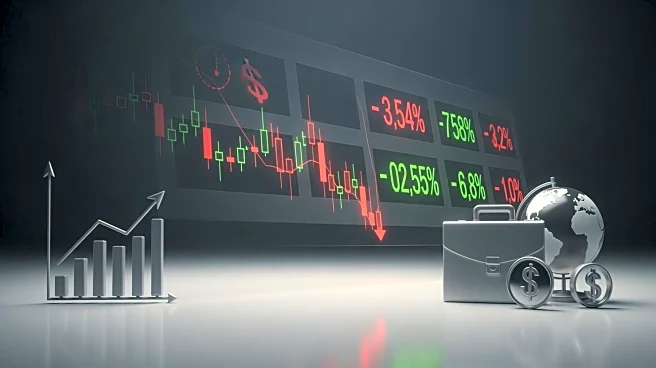What's Happening?
U.S. stocks fell as concerns over bad loans in the banking industry and persistent trade tensions weighed on market sentiment. The S&P 500 and Nasdaq Composite each dropped 0.2%, while the Dow Jones Industrial
Average lost 172 points. Regional banks, including Zions and Western Alliance, experienced significant declines due to worries about credit-related losses. The banking sector has been under scrutiny following recent bankruptcies in the auto industry, raising concerns about lending practices. The Cboe Volatility Index spiked, indicating increased market uncertainty.
Why It's Important?
The decline in bank stocks reflects investor concerns about the stability of the financial sector and potential credit-related losses. The recent bankruptcies in the auto industry highlight vulnerabilities in lending practices, particularly in the private credit market. These developments could impact investor confidence and financial stability, influencing market dynamics and economic forecasts. The ongoing trade tensions and government shutdown add to the uncertainty, affecting various sectors and stakeholders.
What's Next?
Investors will be closely monitoring the banking sector for signs of stability or further challenges. The government shutdown's impact on economic data releases may continue to affect market expectations and decision-making processes. Stakeholders will be watching for any policy changes or resolutions that could alleviate market concerns.
Beyond the Headlines
The scrutiny of lending practices in the banking sector may lead to regulatory changes or shifts in industry standards, potentially influencing long-term financial stability. The ongoing trade tensions may result in shifts in global economic dynamics, affecting trade policies and international relations.










